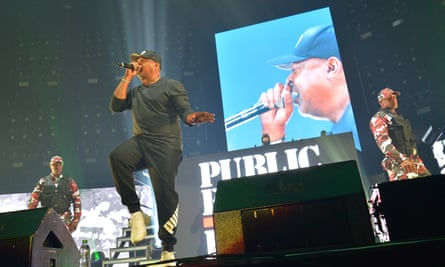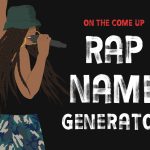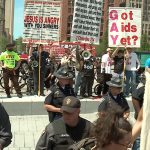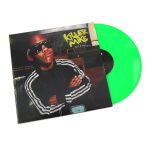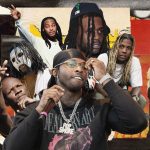Rap music of the 80s emerged as a new form of expression for inner-city youth, marked by its unique style of rhyming lyrics and heavy beats. During this decade, this art form became a cultural movement, portraying the harsh realities and struggles of life in urban areas.
In cities like new york, artists such as run-dmc, ll cool j, and public enemy emerged, using their music to raise awareness about issues like poverty, social injustice, and racism. The success of these pioneers paved the way for countless other artists to follow in their footsteps, creating an entire subculture that would eventually impact mainstream music and culture worldwide.
In this article, we explore the emergence and evolution of rap music in the 80s, and its impact on the music industry and society as a whole.
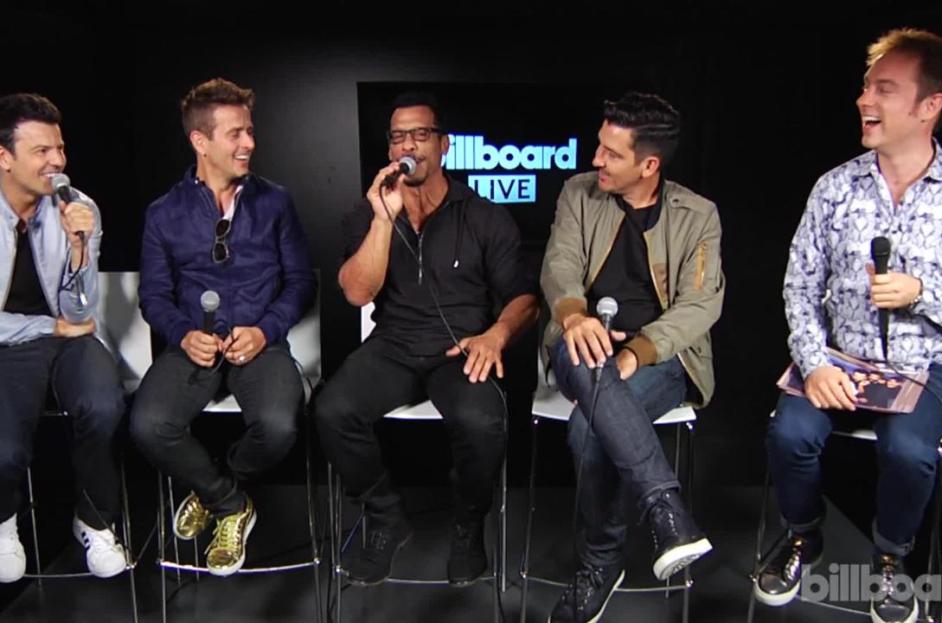
Credit: www.billboard.com
Why Is 80S Rap Music Unique And Different?
Discuss The Emergence Of 80S Rap Music And Its Distinctive Sound.
A new era of music emerged in the 80s with the birth of rap culture. Unlike the previous music genres, rap offered a unique sound that was mainly characterized by the use of turntables and rapping. Some of the distinctive features of the 80s rap music include:
- Heavy use of drum machines and electronic beats.
- Rappers’ ability to create rhyming lyrics on the spot.
- Sampling of music from previous decades, providing nostalgia for listeners.
- A fusion of different music genres such as funk, disco, and soul to create something new.
Highlight The Influence Of African American Culture And Social Issues Of The Period In The Music.
African american culture and social issues played a significant role in shaping the sound of 80s rap music. During this period, african americans were going through social and economic challenges that inspired artists to voice their concerns through music. The music reflected the experiences and lifestyle of the black communities, and some of the themes explored in the songs include:
- Police brutality and racism.
- Gang life and violence on the streets.
- Poverty and inequality.
- Pride in the black culture and identity.
Mention How This Genre Was The Beginning Of Modern Hip Hop Culture And The New Norms It Introduced In Popular Music.
80s rap music set the foundation for modern-day hip hop culture. It introduced new norms that transformed popular music and influenced the music industry as a whole. Some of the significant changes include:
- Introduction of elements such as scratching, breakdancing, and graffiti as an essential part of hip hop culture.
- Use of rap music as a form of social commentary and expression of identity.
- Ability of rappers to tell personal stories and use their music as a platform to inspire and influence change.
- Collaborations between rap artists and other genres of music, leading to new sounds and fusions.
The 80s rap music was a revolutionary genre that introduced a new sound, expressed social issues, and transformed popular music. Today, modern hip hop culture owes its origins to this significant music genre.
80S Rap Music Pioneers:
Discuss The Early Pioneers Of 80S Rap Music, Such As Run-Dmc, Grandmaster Flash, And Ll Cool J.
Run-dmc, grandmaster flash, and ll cool j are some of the most significant names in 80s rap music, considered pioneers of the genre. Their music spoke to the struggles and culture of the african american community and resonated with youth worldwide.
The following are the key points highlighting their contribution:
- Run-dmc: This rap group quickly rose to fame in the mid-80s and became the first rap group to have a gold album. Their songs focused on urban life, from their adidas sneakers to the streets of new york city. Their collaborations with rock legends like aerosmith set the tone for the fusion of rap and rock in the years to follow.
- Grandmaster flash: Known as the “father of hip-hop,” grandmaster flash was one of the pioneers of the genre in the late 70s and early 80s. He introduced new techniques of turntable manipulation, including “cutting” and “scratching,” to create a unique sound. His work with the furious five paved the way for socially conscious rap topics, discussing issues like poverty and police brutality.
- Ll cool j: Ll cool j was one of the first solo rap artists to achieve mainstream success, with his album “radio” becoming a massive hit in 1985. His songs delivered positive messages to the youth, such as “mama said knock you out” that aimed to empower women and end stereotypes. The rapper is also known for his contributions to the hip-hop fashion scene, including tracksuits and kangol hats.
Their work provided perspective into the struggles of the black community, and their music became an essential tool for the underrepresented to redefine their culture and identity.
The Rise Of Gangsta Rap:
Discuss The Emergence Of Gangsta Rap In The Late 80S, Led By Artists Such As N.W.A.
In the late 1980s, a new sub-genre of hip-hop emerged called gangsta rap. This was a form of rap music that originated from inner-city african american neighborhoods and focused on harsh, controversial, and often violent lyrics. The pioneers of this genre were artists like n.
w. a. (niggaz wit attitudes), ice-t, and geto boys. Here are some key points to understand the emergence of gangsta rap:
- The lyrics of this genre were characterized by explicit references to gang activity, misogyny, drug use, and police brutality.
- The music industry was initially hesitant to embrace gangsta rap due to its controversial nature, but the genre grew in popularity among young people.
- Despite criticism and censorship efforts, gangsta rap continued to thrive, paving the way for future rap music that embraced similar themes.
Explain The Controversial Nature Of The Genre And Its Impact On Both The African American Community And The Music Industry As A Whole.
The controversial nature of gangsta rap had a significant impact on both the african american community and the music industry. Here are key points to understand how gangsta rap impacted them:
- Critics of gangsta rap viewed it as glamorizing violence and illegal activity and argued that it sent a negative message to young people.
- Supporters of gangsta rap argued that it was a form of expression for african americans who lived in poverty-stricken and crime-ridden communities.
- Gangsta rap revealed the harsh realities of life in inner-city neighborhoods and brought attention to issues like police brutality, racism, and poverty.
- The music industry benefited from the rise of gangsta rap, as it fueled the sales of rap music and made it a mainstream genre.
The emergence of gangsta rap in the late 80s paved the way for a new era of rap music that embraced controversial themes. While the genre faced criticism, it also brought attention to important issues facing african american communities and contributed to the growth of the music industry.
Specific Themes In Gangsta Rap:
Themes In Gangsta Rap: A Controversial Look
The 80s was a period that saw the transformation of rap music into a form of artistic expression. Gangsta rap was a subgenre that became particularly popular with the african american youth in the usa. This subgenre focused on the themes of violence, crime, drugs, and police brutality.
This section will look at some of the specific themes in gangsta rap that sparked controversy and debate.
Themes In Gangsta Rap:
Gangsta rap was infamous for its portrayal of violence, crime, drugs, and police brutality. Below are some of the specific themes that sparked controversy and debate:
- Drug dealing: Gangsta rap was notorious for glorifying drug dealing, with many rappers rapping about their exploits in the drug industry. The portrayal of drug dealing in gangsta rap often led to criticism from the media, the public, and the police.
- Gang violence: Violence was a recurring theme in gangsta rap, as many rappers focused on telling stories of gang wars, retaliation, and retribution. The glorification of violence in rap music led many to raise concerns about the impact of such lyrics on young listeners.
- Police brutality: Many gangsta rap songs highlighted the theme of police brutality, with lyrics often criticizing the police and their tactics. The portrayal of police in gangsta rap often led to a backlash from law enforcement agencies, who saw it as an attempt to incite hatred against them.
Role Of Media And Political Figures In Shaping Perception
The media and political figures have always played a significant role in shaping the perception of the genre. Below are some of the ways in which they influenced the evolution of gangsta rap.
- Media: The media played a crucial role in shaping public perception of gangsta rap. They often portrayed it as a culture that promoted violence, crime, and drug-related activities. This portrayal led to censorship of some of the gangsta rap albums, and many songs were banned from airplay.
- Political figures: Several politicians and political organizations have criticized and publicly condemned the gangsta rap genre, claiming that it promotes violence and perpetuates negative stereotypes. Some politicians even called for the censorship of gangsta rap music.
Gangsta rap was a controversial sub-genre that triggered intense debates and scrutiny from various quarters. The themes of drug dealing, gang violence, and police brutality were particular points of contention. The media and political figures played a considerable role in shaping the public perception of the genre, often leading to censorship and bans on gangsta rap songs.
80S Rap Music In Pop Culture:
Highlight The Crossover Appeal Of 80S Rap Music Into Popular Culture, Including Movies And Tv Shows.
80s rap music holds a unique position in popular culture. During this decade, hip hop reached new heights of popularity, and its influence spread beyond music and into the broader culture. Here are some key points to highlight the crossover appeal of 80s rap music into popular culture:
- Movies and tv shows of the 80s often featured rap music as a way to appeal to younger audiences. For example, “breakin'” and “beat street” were two films that showcased the breakdancing and hip hop culture of the time.
- The hit tv show “the fresh prince of bel-air” helped to bring rap music into the mainstream. The show featured rapper will smith, who went on to become a huge star in both music and movies.
- 80s rappers like run dmc collaborated with non-rap artists, such as aerosmith, which helped introduce their music to new audiences and showcase the genre’s crossover appeal.
Analyze The Impact Of Music Videos, Fashion, And Dance On The Genre And The Industry.
The 80s was a decade of innovation in music videos, fashion, and dance, and all three played a significant role in shaping the rap genre and the industry as a whole. Here are some key points to analyze their impact on the genre:
- Music videos helped to increase the visibility and reach of rap music. Artists like run dmc and ll cool j used music videos to showcase their unique style and personality, with iconic videos that featured bold fashion choices, high-energy dance moves, and a distinct visual aesthetic.
- The fashion of 80s rap was marked by a bold, flashy, and often outrageous style. The genre’s artists used fashion to express their individuality and identity, with oversized clothing, gold chains, and bucket hats becoming iconic symbols of the era.
- Dance was central to the culture of 80s rap, with breakdancing and other forms of hip hop dance becoming popular. Groups like the rock steady crew helped to popularize breakdancing and street dance, showcasing the genre’s rebellious but creative spirit.
The crossover appeal of 80s rap music helped to bring the genre into the mainstream, while music videos, fashion, and dance played a significant role in shaping the genre’s visual and cultural identity.
Frequently Asked Questions For Rap Music Of The 80S
What Was The First Rap Song Released In The 80S?
The first rap song to break into the mainstream was “rapper’s delight” by sugarhill gang. It was released in 1979 and continued to be popular throughout the early 80s.
Who Were The Most Popular Rap Artists Of The 80S?
Some of the most popular rap artists of the 80s include run-dmc, ll cool j, beastie boys, n. w. a, and public enemy. They paved the way for future artists in the genre.
How Did Rap Music Evolve In The 80S?
Rap music in the 80s evolved from party music to politically charged and socially conscious lyrics. It became a powerful tool for african american artists to express themselves and share their struggles.
What Impact Did The 80S Have On Rap Music Culture?
The 80s marked a turning point for rap music culture. It helped bring hip hop and rap music into the mainstream and allowed for greater expression and diversity within the genre.
What Were The Defining Characteristics Of Rap Music In The 80S?
Rap music in the 80s was defined by its heavy use of drum machines and synthesizers, its focus on lyrics and storytelling, as well as its fusion with other genres such as rock and funk.
Conclusion
The 80s were a defining era for rap music, and the contributions made during this time have had an everlasting impact on the genre. The emergence of a new style of music, and the evolution of hip-hop culture, gave rise to new artists and new sounds that forever changed the musical landscape.
Innovative rappers like run-dmc and public enemy popularized the genre and made it more accessible to the masses, while groups like nwa pushed the boundaries, bringing attention to political and social issues through their music. The success of these pioneers paved the way for future generations of rappers who would continue to push the boundaries of the genre.
The 80s may be over, but the influence of this era continues to be felt today in the music industry, and in countless lives that have been touched by the timeless beats and lyrical genius that is 80s rap.

